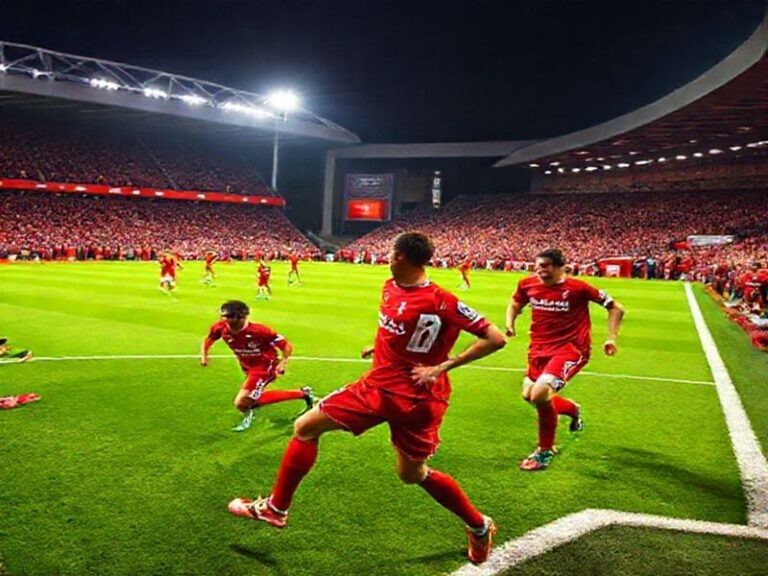Tank Davis, Global Gladiator: How a 5’5″ Baltimore Puncher Became the Internet’s Favorite War Metaphor
The Curious Case of Gervonta “Tank” Davis: A Pocket-Sized Gladiator in a World That Outgrew Its Arena
Dave’s Locker – International Desk
By the time the 10-round “exhibition” in Washington D.C. ended with Rolando Romero flat on his back and the referee scrolling for a decent Wi-Fi signal, every timezone from Manila to Montevideo had already rendered its verdict in GIF form. Tank Davis—five-foot-five in a sport that still measures men like livestock—had once again turned a prizefight into a planetary meme. One right hook, 0.2 gigatons of schadenfreude, and suddenly the global supply chain of outrage and adoration hummed in perfect harmony.
Let us be clear: boxing has always been a convenient metaphor for whatever geopolitical migraine happens to be trending. In the 1930s it was Joe Louis versus Max Schmeling, democracy versus fascism, pay-per-view still a fever dream in Henry Luce’s eye. In the 1980s it was Hagler-Hearns, capitalism versus capitalism, both men sponsored by the same soda company. Now we have Gervonta Davis, a human highlight reel raised in the Baltimore foster-care system, punching other disadvantaged youths for the right to own wristwatches that cost more than Moldova’s GDP. Somewhere in Davos, a consultant just added “athlete-influencer” to the ESG slide deck.
The international significance? Start with the broadcast. PPV streams fractured across continents—legal in Tokyo, pirated in Lagos, VPN-masked in Tehran—turning a lightweight title into the world’s most widely shared illegal download since season three of Narcos. The undercard alone featured six passports, three weight classes, and one Bulgarian heavyweight whose previous job was listed on BoxRec as “nightclub security / Instagram poet.” If NATO ever needs a new rapid-reaction force, it could do worse than recruiting whoever coordinates these streaming servers; they manage smoother logistics than most UN peacekeeping missions.
Next, consider the money. Tank’s last purse—reportedly $5 million plus upside—was wired through three shell companies, two crypto exchanges, and one Delaware LLC named after a Pokémon. Somewhere in the Caymans, an auditor wearing Gucci flip-flops just booked the transaction as “soft power exports.” Meanwhile, in Accra, a barber is explaining to a teenager that the path to economic mobility now runs through 1260 SAT points or a left hook that can rearrange orbital bones. The kid nods, finishes the fade, and googles “how to sell NFT highlight clips.” Globalization in one act.
Soft power, too, is at play. Saudi Arabia recently offered Tank “Prince-level appearance fees” to fight on a yacht parked outside Neom, presumably so MBS can tweet “Vision2030 delivers knockouts.” The Philippines is grooming its own mini-Tank in a 19-year-old southpaw named after a video-game character. Even London hedge funds have skin in the game—shorting the apparel line co-owned by Davis and a rapper whose last album was mostly ad-libs. When a puncher from the wrong side of Fayette Street becomes a derivative, you know late-stage capitalism has achieved terminal velocity.
And then there is the matter of scale. The planet is literally getting too small for the stories we tell. Tank’s reach is 67 inches; Elon Musk’s interplanetary ambitions are measured in astronomical units. Yet both men understand the same algorithm: compress maximum drama into minimum attention span. One sells flamethrowers, the other sells pay-per-view fireballs. The audience, thumb-scrolling in 4K, can’t tell the difference and doesn’t care. In the attention economy, violence is just another vertical—right between beauty tutorials and sourdough recipes.
What does it all mean? Nothing, which is precisely the point. Boxing was once the sport of Hemingway metaphors and civilizational anxiety. Now it’s content, diced into ten-second clips, captioned in a dozen languages, debated by bots arguing over who looked “more scared at the stare-down.” Tank Davis isn’t saving or damning the world; he’s merely providing the gif that plays on loop while the world finishes melting. And for $79.99—plus local taxes—you too can own a piece of the apocalypse, broadcast in 1080p with Spanish commentary.
As the ring lights dim and the memes upload, the final irony lingers like cheap cigar smoke: the smaller the fighter, the larger the circus. And somewhere in Baltimore, a kid who hasn’t eaten today is skipping dinner to watch the replay, calculating how many punches equal one square meal. The global village has never been more connected—or more starving. As for Tank, he’ll wake up tomorrow, check his mentions, and wonder why the world keeps mistaking a prizefight for a parable. Probably because the alternative—admitting it’s just two men bleeding for our amusement—is too honest to monetize.







